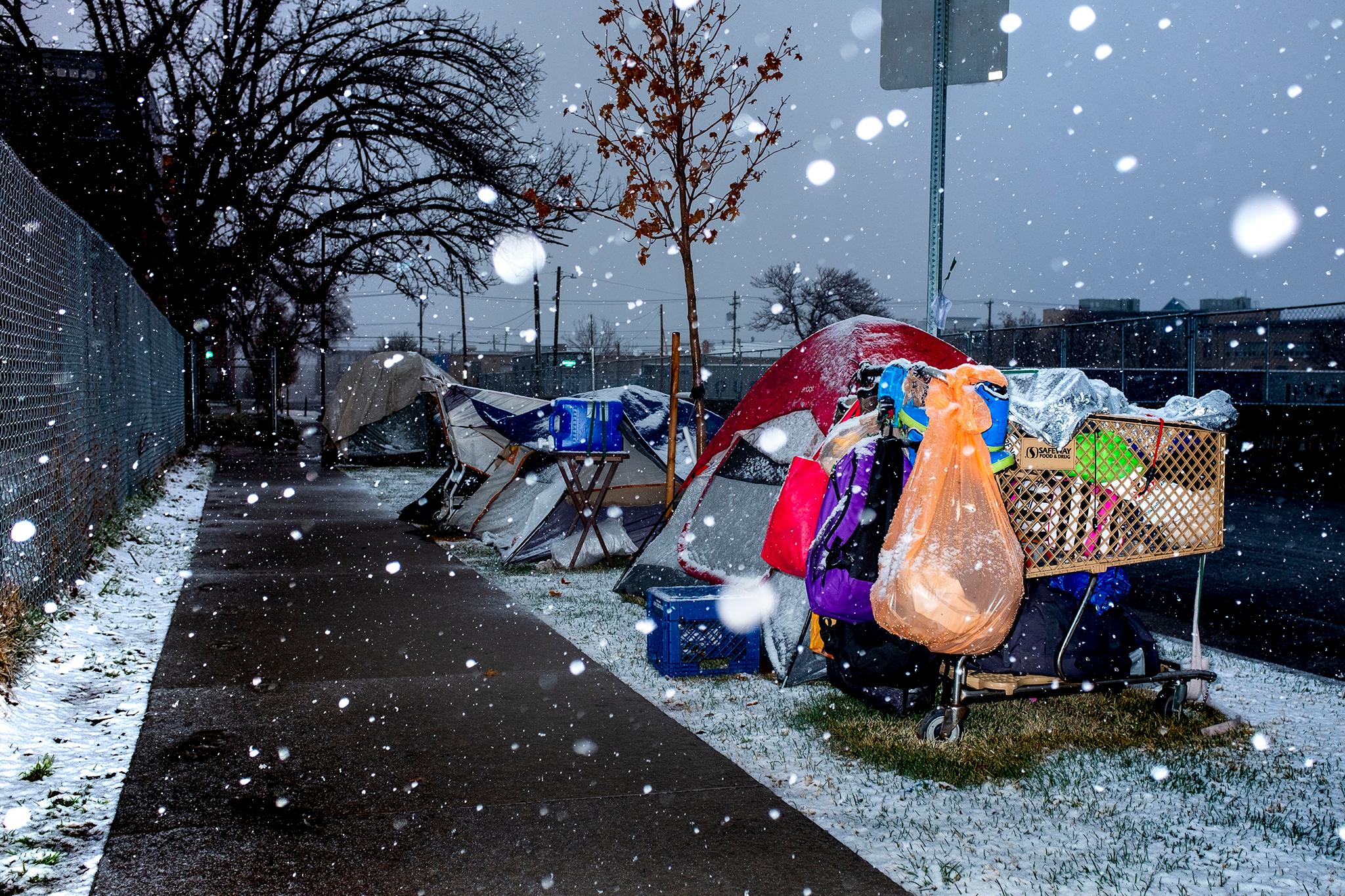City Council voted 6-7 Monday to uphold Mayor Mike Johnston's veto of a bill that would have prohibited encampment sweeps in freezing temperatures.
A split council passed the bill last month 7-6. But they needed a supermajority -- nine votes -- to override Johnston's veto. The bill would have prohibited the city's ability to enforce the urban camping ban when temperatures reached 32 degrees or colder. It would have maintained the Police and Fire Department's jurisdiction to move people breaking the law or in other life-threatening situations.
Supporters say the bill would've saved lives
Proponents of the legislation -- including a number of councilmembers, advocates and nonprofits -- said the bill would save lives and limbs because of increased health risks when people are forced to relocate during freezing temperatures.
Council President Jamie Torres, who co-sponsored the bill along with Councilmembers Shontel Lewis, Sarah Parady and Paul Kashmann, said that people choose not to go to shelters during freezing temperatures for many reasons, like staying with a partner or pet, or out of fear of losing belongings left on the street.
"I continue to believe that moving people from their tent in freezing weather and not being able to move them into shelter that they are willing and able to move to is inexcusable as a city," Torres said.
Opponents wanted the city leadership to have decision-making power
But other councilmembers, the mayor's office and some city department leaders wanted to leave the decision-making power for a sweep in the hands of city leadership on a case-by-case basis. Councilmembers Kevin Flynn, Diana Romero Campbell, Amanda Sawyer, Flor Alvidrez, Chris Hinds and Darrell Watson voted to uphold the veto -- the same group that voted against the bill last month.
"I believe my primary role as a councilmember is to provide laws to make the complex, sometimes frustrating bureaucracy that is the city less complex, or in a dream state, simple," Watson said. "This bill by any stretch of the imagination does the opposite. It makes the complex, more complex."
In a letter earlier this month, Johnston said the bill would have restricted the city's ability to enforce the voter-approved urban camping ban for four months out of the year.
When vetoing the bill, Johnston said he would hold off on large encampment sweeps during freezing temperatures. But on the campaign trail in 2023, Johnston responded "yes" to a set of questions from people experiencing homelessness about whether or not he would support legislation stopping sweeps in cold temperatures.
Vetoes are rare, and overrides of vetoes are even rarer. The last mayoral veto of legislation occurred in 2021 under former Mayor Michael Hancock. In 2022, City Council overrode Hancock's veto of a budget amendment involving funding for crosswalks.
What's next?
The veto comes as the city ups its enforcement of previously closed encampments under Johnston's House1000 program, which brought around 1,000 people indoors during 2023. But as the city starts timing new immigrants out of its shelters, advocates worry the number of people sleeping on the streets in cold temperatures could grow.
"We're thinking about the people out here," said Housekeys Action Network advocate Teri Washington. "It's like we're fighting for nothing, and it's killing a lot of people. A lot of people are dying, because they're being moved and they have nowhere to go."
Although the bill ultimately failed, proponents of the legislation asked Johnston to come back to the table with terms he would support in the coming year.
"I asked one of the mayor's team, perhaps they can come up with a bill that addresses the 32-degree margin, but that takes care of their concerns, to be sure they're able to continue to exercise policy that is of great concern to them," Kashmann said. "So I look forward to continuing to push in that direction in the coming months."













